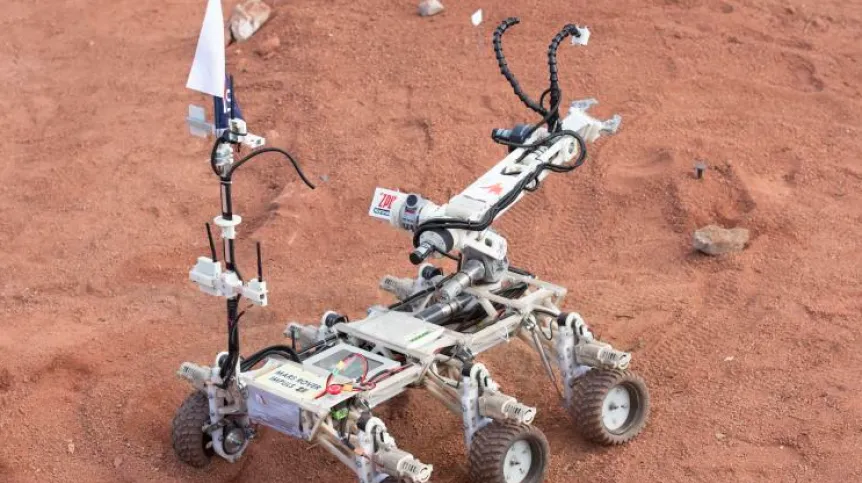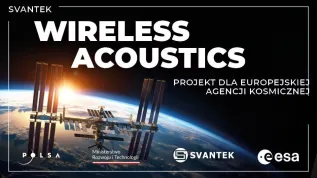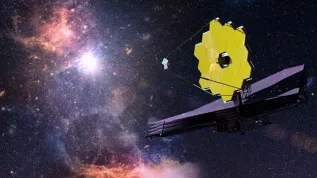
Poland is a country with aspirations related to space robotics and systems that in the future will be placed in space, not only on the planet Mars, but also around our planet, says President of the Polish Space Agency Dr. Grzegorz Brona.
"Poland is a country with aspirations related to space robotics and systems that in the future will be placed in space, not only on the planet Mars, but also around our planet - systems that will be based on robotic subsystems" - says President of the Polish Space Agency Dr. Grzegorz Brona.
Accodring to Brona, Poland is trying to join the EU`s international consortium PER ASPERA, in which countries associated with space robotics cooperate. The organization of prestigious European rover competition, the European Rover Challenge (ERC) in Poland can play an important role in this matter.
"Such an event devoted to space robotics, to which representatives of this consortium are also invited, will help us negotiate joining the consortium and acquire European funds for the development of Polish innovative space projects, namely the robotic ones" - says Brona.
The European Rover Challenge is a great testing ground for students. "Young people who build rovers, very often have contact with theory only at their technical colleges. There`s no space, time, resources for practical experience. But here, when they build rovers and confront them with other universities, not only Polish but also foreign ones, they can see how this theory translates into practice" - says Dawid Pietral from Kielce University of Technology.
The President of the Polish Space Agency draws attention to the fact that building a rover requires the cooperation of students of many specializations. "Firstly, it is precise mechanics, secondly electronics and electronic systems that control the rover. Then there is autonomy, or software that handles difficult environmental situations. When we are talking about rovers, we are talking about a number of different technologies" - says Brona.
As every year, students showed great ingenuity at the competition. Łukasz Kędzierski from Lodz University of Technology says that many parts of his team`s rover are made of carbon fibre. "We are trying to slim down the entire structure, so we are going for innovation" - he explains. In turn, the team from Warsaw University of Technology 3D printed some parts of their robot, but also used ready-made solutions. "We use parts that in our daily lives are used, for example, as sewage pipes" - says Marcin Pulik.
Last weekend, 35 European Rover Challenge (ERC) teams from 20 countries competed at the Jan Pazdur Museum of Nature and Technology "Ecomuseum" in Starachowice. The winners of the fourth edition of the ERC were the "Impuls" team from Kielce University of Technology. In June, the same team finished third in the prestigious University Rover Challenge (URC) in the US.
Although the competition officially ended on September 16, workshops and lectures for participants were scheduled for Monday. Speakers included representatives of the largest space forms in Europe, including Artemis Westenberg from Explore Mars and Piotr Węclewski - specialist in the R&D department of AIRBUS. (PAP)
ksk/ zan/ kap/
tr. RL













